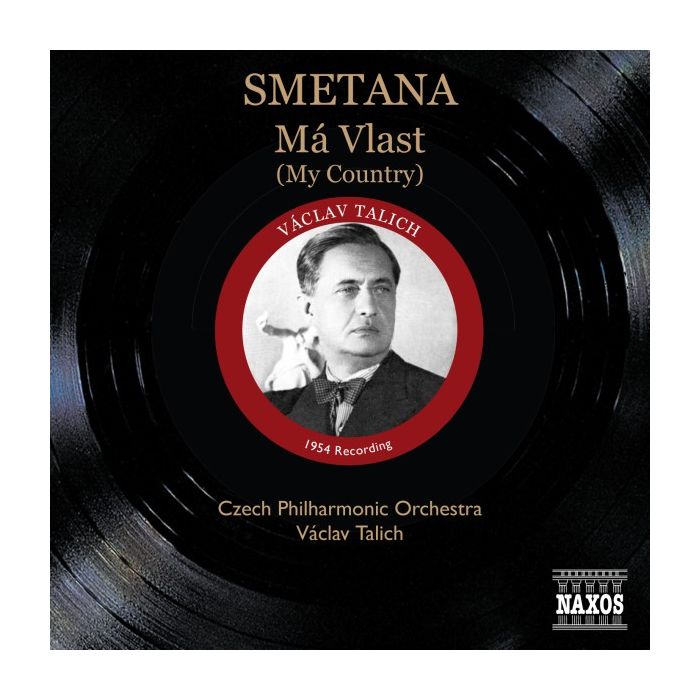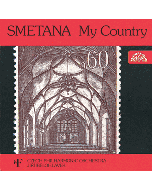
(Produkt nie został jeszcze oceniony)
kompozytor
Smetana, Bedrich
tytuł
Smetana: Ma Vlast (My Country)
wykonawcy
Czech Philharmonic Orchestra, Talich, Vaclav
nr katalogowy
8.111237
opis
Vaclav Talich was the founder of the Czech Philharmonic Orchestra as we know it today, having taken over in 1919 a group of players that would have kindly been described as of European provincial standard. Endless rehearsals followed his arrival and within the space of three years he had created an ensemble ready to be compared with the world's finest.
In the years that followed he had many trials and tribulations, among them being the description of a Nazi collaborator in the Second World War. Just having recovered from that slur, the Communists came to power in Czechoslovakia, robbing him of his position as Music Director and sending him to live in Bratislava. He did his best there with local musicians to form the Slovak Philharmonic, and at least placed it on Europe's musical map. Finding that they had no conductor with an international reputation, the regime had to allow him to return to the Czech Philharmonic to make recordings,
Ma Vlast being one of the greatest achievements, the orchestra seeming to respond to their old maestro with playing far above their standard in the early 1950's. Made for the State recording label, Supraphon, in 1954, it came from his last period with the orchestra. The sound was quite good for its age, the climatic moments just showing stress distortion and there is some loss of inner detail in tutti passages.
The river, Vltava, flows with a spacious impressiveness, the music having a latent power, the woodwind often glistening in the rippling quality. Drama is here in abundance, though the most remarkable aspect is the sunny disposition that shines through the whole performance. Only in the fifth section, Tabor, do we find a grimness invading the music, the final movement, Blanik, full of optimism. • David Denton, David's Review Corner, May 2007
In the years that followed he had many trials and tribulations, among them being the description of a Nazi collaborator in the Second World War. Just having recovered from that slur, the Communists came to power in Czechoslovakia, robbing him of his position as Music Director and sending him to live in Bratislava. He did his best there with local musicians to form the Slovak Philharmonic, and at least placed it on Europe's musical map. Finding that they had no conductor with an international reputation, the regime had to allow him to return to the Czech Philharmonic to make recordings,
Ma Vlast being one of the greatest achievements, the orchestra seeming to respond to their old maestro with playing far above their standard in the early 1950's. Made for the State recording label, Supraphon, in 1954, it came from his last period with the orchestra. The sound was quite good for its age, the climatic moments just showing stress distortion and there is some loss of inner detail in tutti passages.
The river, Vltava, flows with a spacious impressiveness, the music having a latent power, the woodwind often glistening in the rippling quality. Drama is here in abundance, though the most remarkable aspect is the sunny disposition that shines through the whole performance. Only in the fifth section, Tabor, do we find a grimness invading the music, the final movement, Blanik, full of optimism. • David Denton, David's Review Corner, May 2007
nośnik
CD x 1
wydawca
Naxos
data wydania
14.05.2007
EAN / kod kreskowy
747313323722
58,00 zł
Produkt dostepny w niewielkiej ilości.
Wysyłka w ciągu 3 dni roboczych
Darmowa wysyłka dla zamówień powyżej 300 zł!
Darmowy kurier dla zamówień powyżej 500 zł!
sprawdź koszty wysyłki









